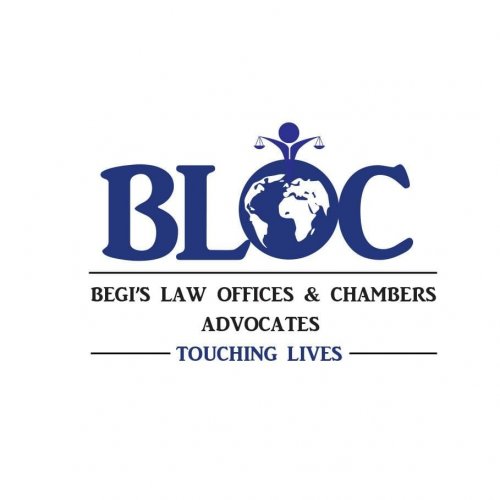About Accounting & Auditing Law in Nairobi, Kenya
Accounting plays a vital role in the financial landscape of any country, and Kenya is no exception. In Nairobi, the capital city of Kenya, accounting and auditing are regulated by specific laws and regulations. These laws are aimed at ensuring accuracy, transparency, and accountability in financial reporting for businesses and organizations.
Why You May Need a Lawyer
Seeking legal advice from a lawyer specializing in accounting and auditing can be crucial in various situations. Here are some common scenarios where you may require legal assistance:
- Starting a new business: A lawyer can provide guidance on setting up proper accounting systems, understanding tax obligations, and ensuring compliance with regulatory requirements.
- Financial audits: If your business is subjected to an audit, a lawyer can help you navigate the process, clarify your rights, and ensure compliance with audit procedures.
- Regulatory compliance: There are numerous laws and regulations in place that govern accounting practices. A lawyer can help you understand and adhere to these regulations, protecting you from potential legal issues.
- Financial disputes: In case of financial disagreements or legal disputes related to accounting and auditing, a lawyer can assist you in resolving these matters and safeguarding your interests.
Local Laws Overview
In Nairobi, Kenya, several laws and regulations are particularly relevant to accounting and auditing. Here is a summary of the key aspects:
- Companies Act: The Companies Act governs the formation, operation, and dissolution of companies. It includes provisions related to accounting and auditing requirements for companies operating in Nairobi.
- Income Tax Act: This act outlines the taxation system in Kenya, including tax obligations for businesses, individuals, and organizations. Adhering to income tax regulations is crucial in accounting and auditing practices.
- Public Finance Management Act: This act regulates financial management in the public sector, ensuring accountability, transparency, and efficient use of public funds. Auditing and reporting requirements for government entities are defined under this act.
Frequently Asked Questions
1. Is it mandatory to conduct annual audits for private companies in Nairobi?
Yes, all private companies registered under the Companies Act in Nairobi are required to conduct annual audits and prepare financial statements.
2. What are the consequences of non-compliance with accounting and auditing regulations?
Non-compliance with accounting and auditing regulations can lead to penalties, fines, or legal repercussions. It is essential to ensure compliance to maintain the legality and reputation of your business.
3. How can I find a reputable auditor for my business in Nairobi?
You can search for auditors approved by the Institute of Certified Public Accountants of Kenya (ICPAK) or consult a lawyer specializing in accounting and auditing for recommendations.
4. Can I hire an in-house accountant rather than outsourcing accounting services?
Yes, you can hire an in-house accountant for your business in Nairobi. However, ensure they possess the necessary qualifications and keep up-to-date with local laws and regulations.
5. Are there any tax incentives available for businesses in Nairobi?
Yes, the Kenyan government offers various tax incentives for businesses, such as investment allowances in specific sectors. Consult with a lawyer or tax expert to identify the available incentives.
Additional Resources
For further information and resources regarding accounting and auditing in Nairobi, Kenya, consider the following:
- Institute of Certified Public Accountants of Kenya (ICPAK) - www.icpak.com
- Capital Markets Authority (CMA) - www.cma.or.ke
- National Treasury - www.treasury.go.ke
Next Steps
If you require legal assistance in accounting and auditing matters in Nairobi, Kenya, here are the recommended steps to follow:
1. Identify your specific needs: Determine the exact area where you require legal advice, such as tax compliance, financial audits, or regulatory matters.
2. Research specialized lawyers: Look for lawyers who specialize in accounting and auditing law in Nairobi. Consider their experience, reputation, and client reviews.
3. Schedule consultations: Reach out to potential lawyers to schedule initial consultations. During these consultations, discuss your needs, ask relevant questions, and assess their suitability to handle your case.
4. Select a lawyer: Based on the consultations, select a lawyer who best meets your requirements and demonstrates expertise in accounting and auditing law in Nairobi, Kenya.
5. Proceed with legal representation: Once you have chosen a lawyer, engage their services by signing an agreement or retainer. Provide them with all relevant information and documents to start working on your case.
Lawzana helps you find the best lawyers and law firms in Nairobi through a curated and pre-screened list of qualified legal professionals. Our platform offers rankings and detailed profiles of attorneys and law firms, allowing you to compare based on practice areas, including Accounting & Auditing, experience, and client feedback.
Each profile includes a description of the firm's areas of practice, client reviews, team members and partners, year of establishment, spoken languages, office locations, contact information, social media presence, and any published articles or resources. Most firms on our platform speak English and are experienced in both local and international legal matters.
Get a quote from top-rated law firms in Nairobi, Kenya — quickly, securely, and without unnecessary hassle.
Disclaimer:
The information provided on this page is for general informational purposes only and does not constitute legal advice. While we strive to ensure the accuracy and relevance of the content, legal information may change over time, and interpretations of the law can vary. You should always consult with a qualified legal professional for advice specific to your situation.
We disclaim all liability for actions taken or not taken based on the content of this page. If you believe any information is incorrect or outdated, please contact us, and we will review and update it where appropriate.














